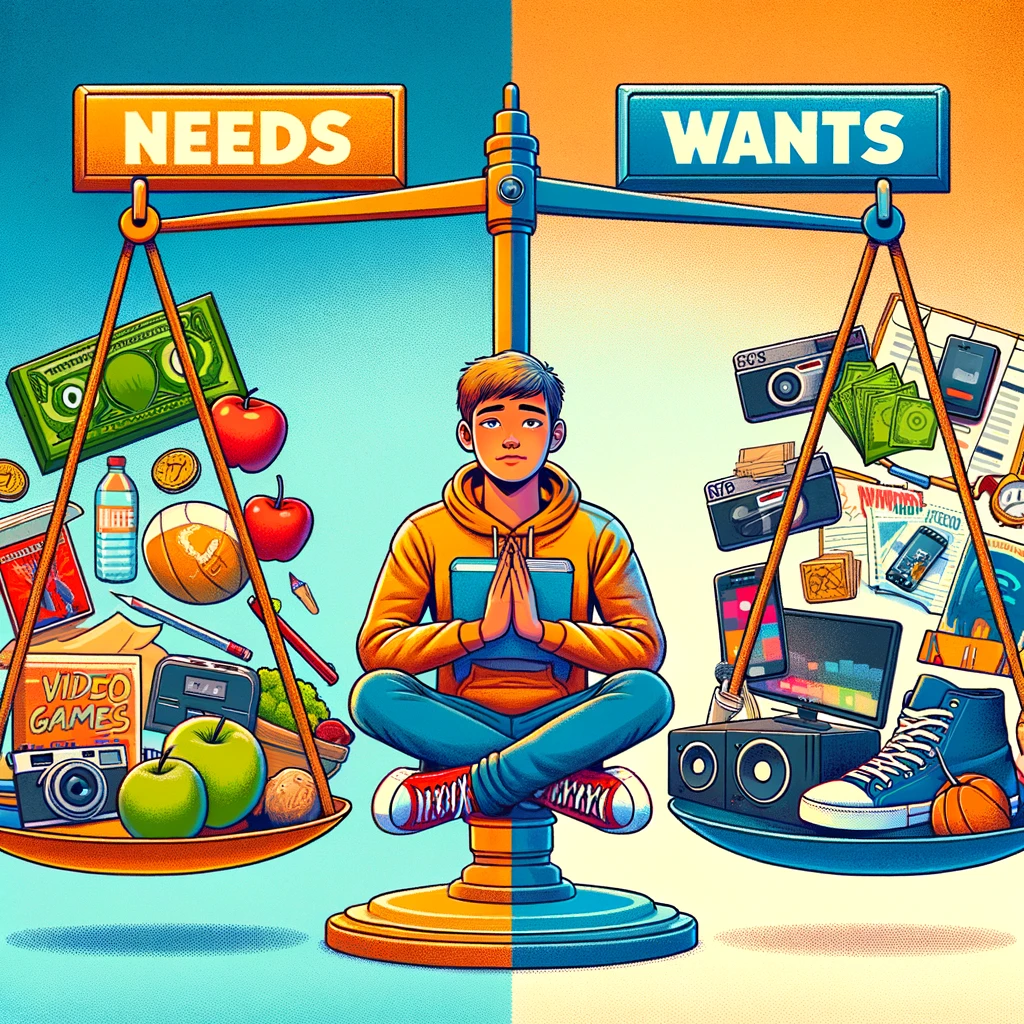
In the world of money, there are two types of things you can spend on: needs and wants. Understanding the difference is like unlocking a superpower for your wallet. Let’s dive in and figure out how to tell them apart and why it matters.
1. What Are Needs?
Needs are the essentials, the stuff you can’t live without. These are your non-negotiables for living a healthy and safe life. Think of them as the foundation of your budget. Common examples include:
- Food (but not the fancy restaurant kind)
- Shelter (rent or mortgage)
- Basic clothing (think more along the lines of jeans and T-shirts, not designer labels)
- Healthcare
- Education
2. And Then, There Are Wants
Wants are all about the extras, the things that are nice to have but you won’t be in trouble without. They add fun and color to life but aren’t essential for your basic survival. Some examples of wants include:
- The latest smartphone or gadget
- Designer clothes and accessories
- Eating out at restaurants
- Video games and entertainment subscriptions
- Vacations and luxury items
3. Why Does It Matter?
Understanding the difference between needs and wants helps you make smarter decisions with your money. It’s the first step in budgeting and ensures you cover the essentials before spending on the fun stuff. Plus, it can help you save for bigger goals down the line.
4. How to Balance Needs and Wants
- Prioritize: Always cover your needs first. Make sure you have enough for your basic living expenses before anything else.
- Budget for Wants: It’s okay to spend on wants, but plan for them. Set aside a certain amount of your money for fun expenses, so you don’t overspend.
- Save First: Before you spend on wants, make sure you’re saving a portion of your money. Whether it’s for college, a car, or an emergency fund, saving ensures you’re prepared for the future.
- Ask Yourself: Before buying something, ask, “Is this a need or a want?” If it’s a want, consider if it’s worth the expense or if the money could be better used elsewhere.
5. In Summary
Mastering the art of distinguishing between needs and wants is a key life skill. It’s not about denying yourself the things you enjoy but about making informed choices. By prioritizing your needs, budgeting for your wants, and saving for the future, you’re setting yourself up for financial success. Remember, smart spending today means more freedom and options tomorrow.
